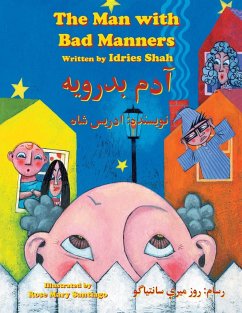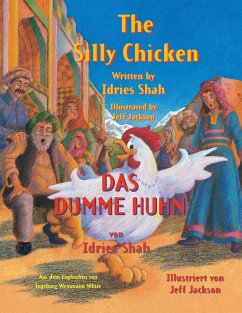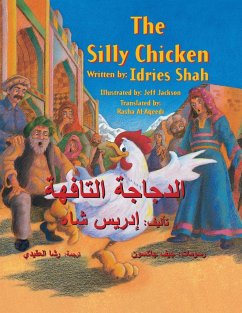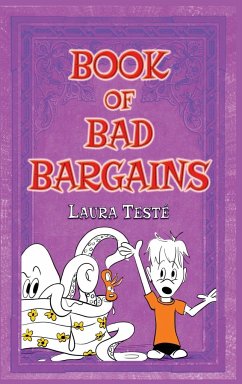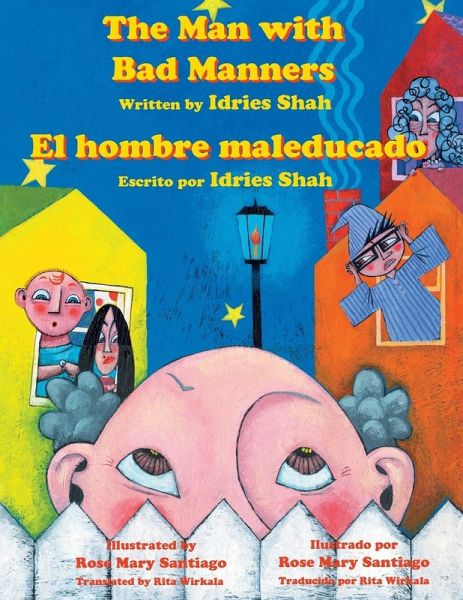
The Man with Bad Manners - El hombre maleducado
English-Spanish Edition
Versandkostenfrei!
Versandfertig in 1-2 Wochen
15,99 €
inkl. MwSt.

PAYBACK Punkte
8 °P sammeln!
(Bilingual English-Spanish edition / Edición bilingüe inglés-español) This is the story of a very badly behaved man, how a young boy in the village hatches a plan to change the man's behavior - and how, with the help of the other villagers, the plan succeeds, to everyone's benefit. Children, of course, love the idea of an adult behaving badly. At the same time, the story helps them learn valuable lessons about initiative, negotiation, conflict resolution and cooperation. Rose Mary Santiago's illustrations provide delightful and amusing counterpoint to the tale. The Man with Bad Manners is ...
(Bilingual English-Spanish edition / Edición bilingüe inglés-español) This is the story of a very badly behaved man, how a young boy in the village hatches a plan to change the man's behavior - and how, with the help of the other villagers, the plan succeeds, to everyone's benefit. Children, of course, love the idea of an adult behaving badly. At the same time, the story helps them learn valuable lessons about initiative, negotiation, conflict resolution and cooperation. Rose Mary Santiago's illustrations provide delightful and amusing counterpoint to the tale. The Man with Bad Manners is one of an illustrated series of Sufi teaching stories from the Middle East and Central Asia that were collected and adapted for children by Idries Shah, and that have captivated hearts and minds for more than a thousand years. The stories are designed to help children learn to examine their assumptions and to think for themselves. In the Sufi tradition, there is a continuum between the children's story, the entertainment or folklore story and the instructional or instrumental story. A story can help children deal with difficult situations and give them something to hold on to, but it can also stimulate a deeper understanding in adults. Esta es la historia de un hombre que se porta muy mal, de cómo un niño en el pueblo inventa un plan para cambiar el comportamiento del hombre y de cómo, con la ayuda de los demás aldeanos, el plan tiene éxito, para beneficio de todos. A los niños, por supuesto, les encanta la idea de que un adulto se comporte mal. Al mismo tiempo, la historia les ayuda a aprender valiosas lecciones sobre iniciativa, negociación, resolución de conflictos y cooperación. Las ilustraciones de Rose Mary Santiago proporcionan un contrapunto encantador y divertido al cuento. El hombre maleducado forma parte de una serie ilustrada de historias de enseñanza sufíes de Oriente Medio y Asia central que fueron recopiladas y adaptadas para niños por Idries Shah, y que han cautivado corazones y mentes durante más de mil años. Las historias están diseñadas para ayudar a los niños a aprender a examinar sus suposiciones y a pensar por sí mismos. En la tradición sufí, existe un continuo entre el cuento infantil, el cuento de entretenimiento o folclórico y el cuento instrumental o instructivo. Una historia puede ayudar a los niños a lidiar con situaciones difíciles y darles algo a lo que aferrarse, pero también puede estimular una comprensión más profunda en los adultos.




